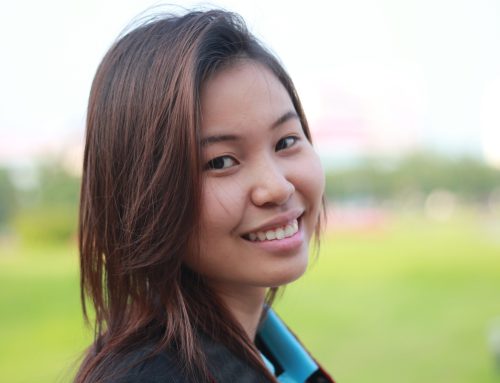English idioms, phrasal verbs, and colloquialisms
As if learning English wasn’t hard enough, what happens when you run into someone using english idioms, phrasal verbs or colloquialisms? In fact, I just did it there. The phrasal verb “run into” doesn’t mean to run inside or collide with. In this case, it actually means “to encounter”.
The problem with all three of these parts of speech is that there is no way to know their meaning even if you know the meaning of each of the words. They are often combined in a way that the meaning has no relation to the actual words.
Every language has its version of these. When I first started to learn the Chinese characters, I didn’t know that putting two separate characters together completely changed the meaning of the individual characters. So, I am here to help you decode some of these mysterious phrases, but for the most part, you’re just going to have to commit them to memory. One technique I have for learning them is to use them as soon as I learn them. It really makes you sound like a native speaker of the language. So, let’s look at the three different types.
English Idioms
Idioms are groups of words in a specific order that form a phrase that means something different than the individual meanings of words in the phrase. Additionally, they are usually unique to the language in which they’re used. That means that, most of the time, there is no logical translation into another language.
Because there is no direct translation, that makes them even more difficult to learn. Idioms are used regularly so they are also important to understand. Below are examples of some common idioms used in American English. Keep in mind that British English has its own idioms.
| Idiom | Meaning | Example |
|---|---|---|
| Bend over backwards | To try please or accommodate someone to an unusual degree | Bill bent over backwards to get the project done in time for launch. |
| Blow your own horn | Tell people how good or successful you are (used in negative way). | Shelly is always blowing her own horn about what a great coder she is. |
| Cut corners | Save time or money by finding easier or cheaper ways to do things. | Because he cut corners on the product, it will have a shorter lifespan. |
| Burn the midnight oil | To work late in the night | I had to burn the midnight oil to get the report finished on time. |
| Run around in circles | To be active without achieving any worthwhile result | I feel like we’ve just been running in circles trying to get approval on the requirements |
Source: https://lemongrad.com/idioms-with-meanings-and-examples/
English Phrasal verbs
These are ordinary verbs you probably already know the meaning of. However, in this case, they are combined with prepositions or adverbs to create a phrase that wouldn’t make any sense to you even if you know the meaning of all the words in the phrase. This makes them similar to idioms, except that they are specifically made with verbs, implying action.
You have these in your own language, so you understand. With English, you will just have to memorize them. Below is a list of some common phrasal verbs and their meaning.
| Phrasal verb | Meaning | Example |
|---|---|---|
| back somebody up | support | My boss backed me up in that meeting. |
| blow up | fail | That criticism blew up in his face. |
| bring something up | start talking about a subject | Don’t forget to bring up our earnings at the meeting. |
| call something off | cancel | We need to call off the website launch until we work out the bugs (meaning errors). |
| calm down | relax (become less excited) | I think we all just need a break to calm down. |
Source: https://mannerofspeaking.org/2020/01/08/6-tips-for-speaking-english-to-non-native-speakers/
English Colloquialisms
Finally we have phrasal colloquialisms. A colloquialism is a phrase that has risen from verbal speech. It is always used as an informally. Sometimes it is referred to as slang or jargon, but this is not necessarily correct.
Slang refers to words used only by specific social groups based on region, age, or socio-economic identity. In contrast, jargon is most commonly used within specific occupations, industries, and activities. Colloquial language includes slang, along with abbreviations, contractions, idioms, turns-of-phrase, and other informal words and phrases known to most native speakers of a language or dialect.
Let’s look at some common colloquialisms used in American English.
| Colloquialism | Meaning | Example |
|---|---|---|
| No worries | That’s alright. | No worries about the mess. I’ll clean it up. |
| I feel you | To understand and empathize with you. | I feel you. That was really unfair. |
| My bad | To make a mistake. | My bad! I didn’t mean to do that. |
| I’m game | To want to do something | I’m game for going out to eat after work. |
| Sucked | It was bad/poor quality. | That movie sucked |
Source: https://takelessons.com/blog/american-english-slang-words
Using English idioms, phrasal verbs, and colloquialisms
Personally, idioms, phrasal verbs, and colloquialisms are my favorite things to learn in a foreign language because they make you sound like a native speaker. People are always impressed when I use a phrase that only someone from their region knows so get to know some and practice this week.
For help with your communication and pronunciation skills, check out Packard Communications’ services page for an initial assessment, small classes, individual training, or online training!
Related information
The above content relates to the following topics: Accent Modification, Accent Reduction, Speaking English, Speech Skills, Learning American English. Secondarily, it relates to: Speech Pronunciation, Intonation Vowels Consonants, Talking Communication, Spelling, Presentation Skills, Interviewing, Conversation, Speech-Language Pathologist. Finally, these topics are related: Online Training Coaching, Private Classes, Seminars, SLP, and Speech Therapist.
Our services cover the following Oregon regions: Portland, Hillsboro, Beaverton, Bethany, Cedar Mill, Cedar Hills, Oak Hills, Lake Oswego. Secondarily, we cover: West Linn, West Slope, Camas, Happy Valley, Rock Creek, Sherwood, Raleigh Hills, Tigard, Tualatin, Gresham, Wilsonville, Aloha. Other areas of Oregon include: Salem, Eugene, Springfield, Corvallis, Oregon City, Woodburn, Forest Grove, Newberg, Milwaukee, Sherwood, Canby, Troutdale, and Cornelius.






